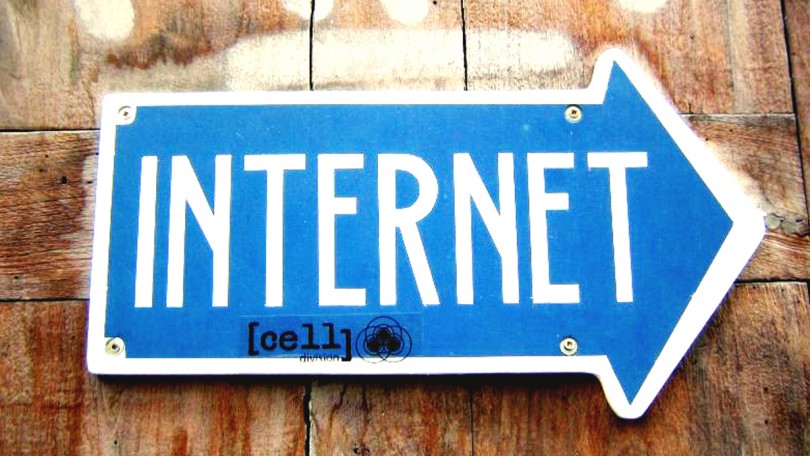Last week, the Web Foundation’s Africa Regional Coordinator Nnenna Nwakanma attended the seventh West African Internet Governance Forum. In this blog post, she offers her reflections on the Forum, its outcomes, key next steps, and the role the African Declaration on Internet Rights and Freedoms must play in building a Web We (all) Want in Africa.
Last week’s West African Internet Governance Forum (WAIGF) has the potential to be a watershed moment for Internet rights on the continent. Why? This was the first such African gathering I can recall that went beyond civil society groups talking to each other. Instead, WAIGF truly incorporated governments, international organisations and regional groupings. ECOWAS took on a meaningful role by hosting the Forum – a significant development. As a result of these strong foundations, the Forum produced a detailed communique – one which commits member states to action on Internet rights.
But it’s not time to celebrate. A long road lies ahead if we are to build a Web that truly transforms the day to day lives of ordinary Africans. After the talk, now it’s time for action through collaboration between civil society, governments, international organisations and the private sector — both in West Africa and across the continent.
Here are three of the areas addressed in the communique where urgent attention must be paid.
Affordable access
The Web offers great potential for socio-economic development, and we’re excited about the prospects. But we mustn’t forget that this only holds true for those who are connected to it.
We are used to the media buzz about “Africa Rising”. But 34 out of the world’s 48 Least Developed Countries are still in Africa. Worldwide 60% of people are still not online, and a large number of these live on our continent.
We are still a long way off from the Broadband Commission’s cost target of 5% of annual household income. According to the International Telecoms Union (ITU), at the end of 2013, the average price for an entry-level fixed broadband connection in the developing world represented more than a quarter of an average citizen’s monthly income. This year’s Alliance for Affordable Internet (A4AI) Affordability Report showed that these high prices hit women, rural populations, and those living on less than $2 per day hardest.
So yes, Africa is rising — but for not for everyone.
As well as innovative technical solutions, the regulatory environment needs to foster competition for low prices and governments must invest in open access infrastructure to improve affordability. For example, we need to encourage countries like Malawi, currently considering a tax on broadband that would limit access for students and low to middle income users, to see the benefits of a free, open Web and abandon this tax.
The good news is, we’ve seen some great progress. Ghana has recently scrapped a 20% import duty on smartphones, meaning more users will be able to afford a handset that can get them online. And three African countries — Nigeria, Ghana and Mozambique — demonstrated leadership by being the first to join A4AI, a coalition pushing for policy reforms that will make fast, reliable Internet affordable and accessible to all.
Freedom of speech and right to information online
The World Wide Web is transformational because it gives everyone a voice and access to information. It has the potential to help address the inequalities that plague our continent. We — the participants at the WAIGF — all believe this, or else we wouldn’t have attended the discussion.
But we need to be honest with ourselves too. We need to admit that even if we built the best infrastructure and achieved high Internet access rates, there can be no progress without a fundamental commitment to rights such as Freedom of Speech and Access to Information.
If we look around our neighbourhood, we’ll find that actually this is an area where some might say Africa is backsliding.
Gambia, a member of the WAIGF, has not submitted any reports on the implementation of the African Charter of Human and People’s Rights to the African Union for 20 years. How can we believe this nation will implement any of the commitments in the communiques from the WAIGF? Or the African Declaration on Internet Rights and Freedoms, once finalised and ratified?
And it is not just in the West African region that we see cause for concern. South Africa has tabled wide-reaching and vaguely worded reforms that could require everyone to have pre-approval before publishing online — a move that South African coalition Right 2 Know has said essentially proposes pre-publication censorship. As one of the major engines of growth on the continent, South Africa must lead the way by flourishing as a free and open society.
Surveillance and online privacy
Citizens’ privacy and data online is under threat — not just on our continent but worldwide. Some governments, often under the banner of counter-terrorism efforts, are increasing censorship and surveillance and taking our online freedoms away. While this might seem reasonable on the surface, it opens the door to abuse of these powers, allowing governments the temptation to access more information than is reasonable or appropriate, and forcing Web users to change their behaviour.
The WAIGF communique calls on governments to be more open about their surveillance and privacy policies, ensuring that civil society and the private sector are included in decisions that affect citizens and customers of online services.
For much of our continent, this is uncharted territory. We’re still struggling to get the majority of our citizens online in the first place. However, this isn’t a reason to ignore these concerns. Governments are making laws and regulations now, so we must be vigilant and participate in that process. We have an opportunity to get privacy regulation right from the outset, rather than being forced to rewrite unsuitable regulation in future — a situation faced by the developed world now.
Last year, the AU adopted a Convention on Cybersecurity and Personal Data Protection that would establish a legal framework for developing regulation in this area. Several other bills are mushrooming at national levels. The question that needs to be asked is whether we are doing this in a consultative multi-stakeholder way and whether such legal instruments are flexible enough to adapt to the fast-changing digital landscape. For me, legislating in this space should not be a one-off thing, but a continued engagement to balance rights with responsibilities.
Conclusion
As we’re taking two steps forward, often we are taking one step back. We have an opportunity to address these challenges in a holistic way as Africa advances and learn from the experiences of others. We can draw on positive examples from others like the Marco Civil da Internet from Brazil.
We must continue to work together for a fair, free and open Web and we encourage individuals and organisations to sign the African Declaration on Internet Rights and Freedoms to ensure Africa has the chance to realise the full benefits of the Web for continued growth and prosperity. ECOWAS has engaged; here is looking forward to the engagement of the other sub-regional blocks.




Leave a Comment